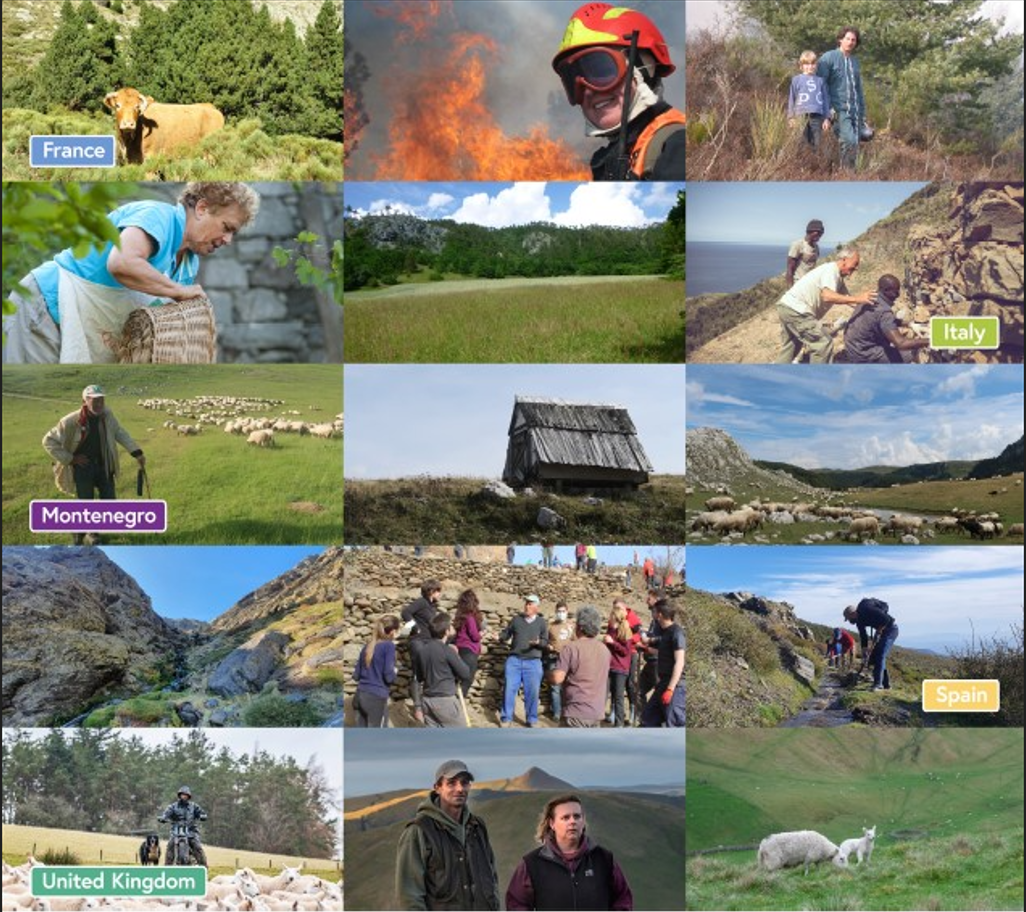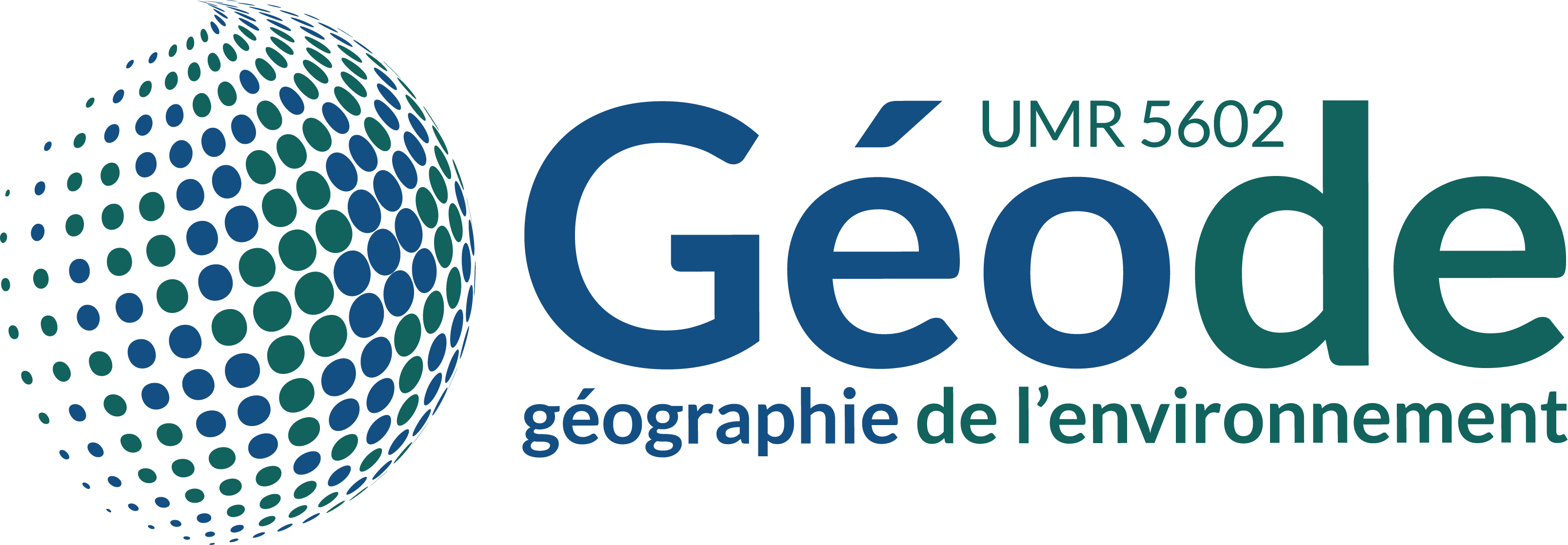-
Partager cette page
The Closing Conference of the project IRIS
Publié le 24 octobre 2023 – Mis à jour le 24 octobre 2023
The Closing Conference of the project IRIS “Inspiring rural heritage: sustainable practices to protect and conserve upland landscapes and memories" with a workshop on Sinjajevina and the opening of the exhibition "Future through tradition: Inspiring living heritage for the protection and promotion of European mountain landscapes"

The Closing Conference of the European project IRIS “Inspiring Rural Heritage: Sustainable practices for the protection and preservation of mountain landscapes and memories”, will be held in Kolašin, Montenegro, from 19-21. October 2023. The IRIS project has been implemented since October 2020 in five European countries: France, Italy, Montenegro, Spain, and the United Kingdom. The project aims to improve the socially and ecologically sustainable conservation through use of mountain areas and their unique natural and cultural heritage. The project explores and develops a "living heritage" approach, promoting "protection through use" of mountain territories and neighboring rural areas. The IRIS project is co-financed through the Horizon 2020 framework program of the European Union for research and innovation, and is implemented by a consortium consisting of: University of Genoa from Italy as coordinator the National Council for Scientific Research (CNRS) and the University of Toulouse from France, the University of Granada from Spain and the University of Durham from United Kingdom. The implementation of the IRIS project in Montenegro is coordinated by the Laboratory for Environmental Geography (GEODE), CNRS and the University of Toulouse in close collaboration with the University of Montenegro contributing with an interdisciplinary team of researchers and professors composed by historians, agro-economists, ecologists and lawyers.
As part of the conference, a field visit with over 20 international scientists will be organized to Sinjajevina on Thursday 19th, which will be followed by a Workshop about Sinjajevina on Friday 20th of October. This Workshop will focus on the promotion of mountain animal husbandry from a cultural, socio-economic and environmental point of view. The Workshop will be followed by the opening of the exhibition on Friday evening about “Future through tradition” concerning the five study cases of the project in France, Italy, Montenegro, Spain and United Kingdom, and Saturday the results of this research project from the other four countries will be presented.
The final conference of the IRIS project aims to present the results of the activities implemented by the project partners in the five countries, in the pilot areas of Enveigt in the Eastern Pyrenees in France, Eastern Ligurian Apennines in Italy, Sinjajevina in Montenegro, Guadix region at the north of the Sierra Nevada in Spain and Cheviot Hills between Scotland and England in the north-east of United Kingdom. At the same time, the goal of the conference is to be a platform for exchanging experiences and good practices with decision makers related to mountain areas, while building new dialogues for their protection through use. 
The pilot area of the IRIS project in Montenegro is Sinjajevina, which is the largest pasture mountain in Montenegro and one of the largest in Europe. Sinjajevina with katuns, seasonal mountain settlements which are increasingly valued for their natural and cultural values, are still used by a significant number of herders, again the most important pastoral community in the country. This is particularly significant for Montenegro, bearing in mind that the Administration for the Protection of Cultural Property of Montenegro accepted the initiative for the protection of Katunovanje or the tradition of raising in transhumance to highland pastoral settlements (katuns), which could become part of UNESCO's Representative List of the Intangible Cultural Heritage of Humanity through inclusion in the protected practice of Transhumance that is already existing in this list. In fact, the Katunian way of life, as in other European countries, contributes to the creation and preservation of exceptional cultural landscapes that have been created for centuries, with a unique biological diversity that has evolved with this way of natural resource use, important ecosystem services, an agricultural system with extremely high-quality products and large eco-tourist potential.
At the Workshop on Sinjajevina, on Friday, October 20, in the first part, there will be a presentation of the results of the activities of the IRIS project in Sinjajevina in the fields of anthropology, geography, history, law, agronomy, ecology and heritage. Then the activities and approaches of various stakeholders at the national level related to Sinjajevina will be presented, as well as perspectives from the point of view of representatives of local self-governments and the local community. At the same time, significant experiences from abroad will be presented, followed by an exchange between scientists, key actors, policy-makers and decision-takers about the future of this territory. The goal is to use this workshop as a platform for discussion with key actors and various experts about the future potential protection, heritage enhancement and community centered and participated sustainable development of Sinjajevina, which could also be an inspiration for other mountain areas of Montenegro and the Balkans.
As part of the conference, the opening of the exhibition "Future through tradition: Inspiring living heritage for the protection and promotion of European mountain landscapes" will be organized in cooperation with the Cultural Center of Kolašin, in the Local Museum of Kolašin, on October 20 at 19:00. The exhibition shows five examples of living landscapes in pilot sites of the five countries, through which the concept of "protection through use" of mountain areas is promoted.
At the opening of the exhibition, Draginja Kujović, ethnologist from the Kolašin Local Museum, Pablo Dominguez, coordinator of the IRIS project in Montenegro, as well as Davor Sedlarević from the Culture Center, head of the research station Ethno-camp Kolašin, will speak, and then the female group "Đude" from KUD "Mijat Mašković" from Kolašin will make a traditional singing.
As part of the conference, a field visit with over 20 international scientists will be organized to Sinjajevina on Thursday 19th, which will be followed by a Workshop about Sinjajevina on Friday 20th of October. This Workshop will focus on the promotion of mountain animal husbandry from a cultural, socio-economic and environmental point of view. The Workshop will be followed by the opening of the exhibition on Friday evening about “Future through tradition” concerning the five study cases of the project in France, Italy, Montenegro, Spain and United Kingdom, and Saturday the results of this research project from the other four countries will be presented.
The final conference of the IRIS project aims to present the results of the activities implemented by the project partners in the five countries, in the pilot areas of Enveigt in the Eastern Pyrenees in France, Eastern Ligurian Apennines in Italy, Sinjajevina in Montenegro, Guadix region at the north of the Sierra Nevada in Spain and Cheviot Hills between Scotland and England in the north-east of United Kingdom. At the same time, the goal of the conference is to be a platform for exchanging experiences and good practices with decision makers related to mountain areas, while building new dialogues for their protection through use.

The pilot area of the IRIS project in Montenegro is Sinjajevina, which is the largest pasture mountain in Montenegro and one of the largest in Europe. Sinjajevina with katuns, seasonal mountain settlements which are increasingly valued for their natural and cultural values, are still used by a significant number of herders, again the most important pastoral community in the country. This is particularly significant for Montenegro, bearing in mind that the Administration for the Protection of Cultural Property of Montenegro accepted the initiative for the protection of Katunovanje or the tradition of raising in transhumance to highland pastoral settlements (katuns), which could become part of UNESCO's Representative List of the Intangible Cultural Heritage of Humanity through inclusion in the protected practice of Transhumance that is already existing in this list. In fact, the Katunian way of life, as in other European countries, contributes to the creation and preservation of exceptional cultural landscapes that have been created for centuries, with a unique biological diversity that has evolved with this way of natural resource use, important ecosystem services, an agricultural system with extremely high-quality products and large eco-tourist potential.
At the Workshop on Sinjajevina, on Friday, October 20, in the first part, there will be a presentation of the results of the activities of the IRIS project in Sinjajevina in the fields of anthropology, geography, history, law, agronomy, ecology and heritage. Then the activities and approaches of various stakeholders at the national level related to Sinjajevina will be presented, as well as perspectives from the point of view of representatives of local self-governments and the local community. At the same time, significant experiences from abroad will be presented, followed by an exchange between scientists, key actors, policy-makers and decision-takers about the future of this territory. The goal is to use this workshop as a platform for discussion with key actors and various experts about the future potential protection, heritage enhancement and community centered and participated sustainable development of Sinjajevina, which could also be an inspiration for other mountain areas of Montenegro and the Balkans.
As part of the conference, the opening of the exhibition "Future through tradition: Inspiring living heritage for the protection and promotion of European mountain landscapes" will be organized in cooperation with the Cultural Center of Kolašin, in the Local Museum of Kolašin, on October 20 at 19:00. The exhibition shows five examples of living landscapes in pilot sites of the five countries, through which the concept of "protection through use" of mountain areas is promoted.
At the opening of the exhibition, Draginja Kujović, ethnologist from the Kolašin Local Museum, Pablo Dominguez, coordinator of the IRIS project in Montenegro, as well as Davor Sedlarević from the Culture Center, head of the research station Ethno-camp Kolašin, will speak, and then the female group "Đude" from KUD "Mijat Mašković" from Kolašin will make a traditional singing.





